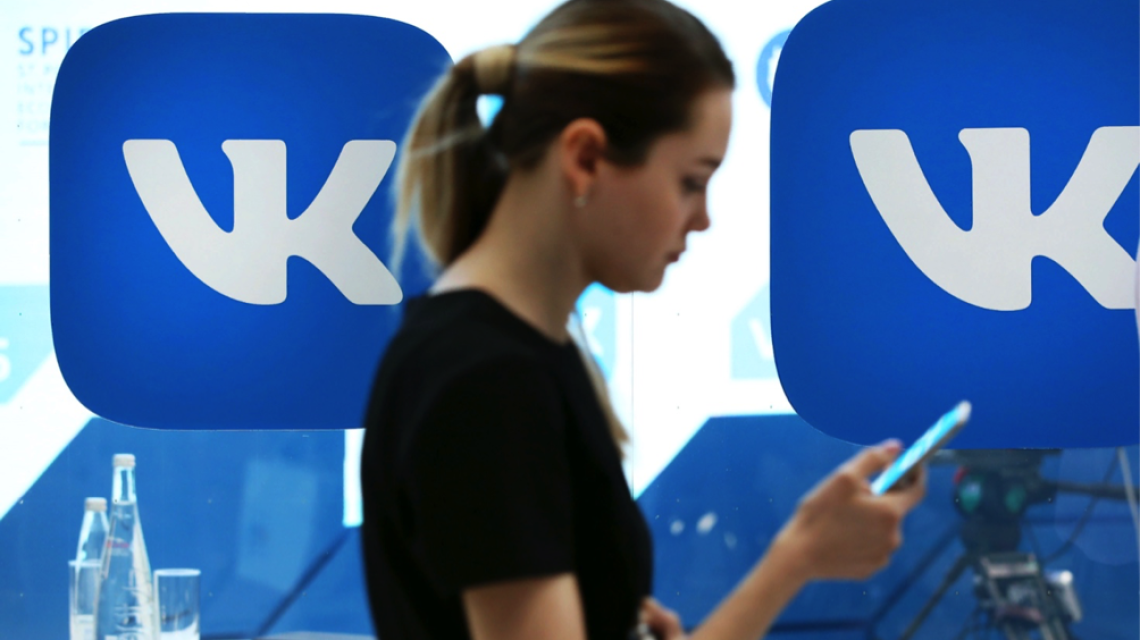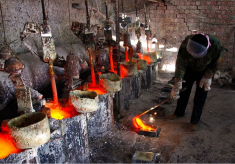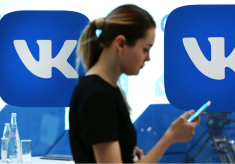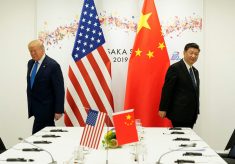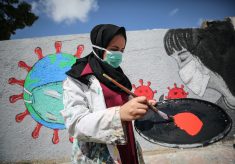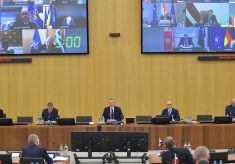As known by informed netizens, the VK Group, is the Russian corporation that controls, among other internet services, VKontakte (or VK), probably the most famous social media platform in the post-Soviet area.
After a series of transactions, in the early days of the month the state-controlled gas giant Gazprom got hold of more than 50% of the voting rights in the VK Group through a network of subsidiaries and affiliated companies. Thus, on December 3 VK’s former CEO Boris Dobrodeev announced his intention to leave his position, while Gazprom Media declared that the so-called Russian Facebook will remain an “independent company”.
In the eyes of commentators, what raised further fears of more government control over VK was the appointment of Vladimir Kiriyenko, former VP at Rostelecom (a state-run telecommunications firm), as the new CEO of the group on December 13. He is the son of Sergei Kiriyenko, one of the most prominent and influential political figures in the country. Ex-Prime Minister of Russia in 1998, Kiriyenko sr. is now acting as Deputy Chief of Staff of the Presidential Administration and was among the main promoter of President Putin’s Constitutional reform in 2020.
This move seems aligned with Russian authorities’ strategy to strengthen their control of what runs on the internet domestically. In the summer of 2021, Putin signed a law to oblige foreign social media giants and Big Techs to establish legal entities in the country, a decision that affects at least 20 platforms such as Meta, Google, Telegram, and Twitter.
Actually, pressures on VK by the Kremlin are not something new. Through the years, the platform developed by Pavel Durov since 2006 served the purposes of gathering and coordination of demonstrators for different movements, like in 2012 during mass protests in Moscow or in 2014 in Ukraine. In the context of Kiev’s gatherings, a conflict with the Federal Security Service (FSB, the Russian internal security and counterintelligence service, one of the heirs of the KGB) over the handling of Ukrainian users’ personal data forced Durov to sell his shares of the company.
Enhanced Russian state control over a social network with roughly more than 100 million active users may have implications that resonate well beyond the domestic sphere. While counting almost 71 million Russians visiting the platform in a month, VK is the number one SM in several other countries located in Russia’s neighbourhood and of great strategic importance to the Kremlin, including Ukraine, Belarus, Kazakhstan, and Latvia.
In addition, according to the US Department of State, the platform has been referred to as one of the vehicles of Russian disinformation and has been already employed by Moscow to carry out different destabilising campaigns of propaganda. One example comes from 2017, when Ukraine was forced to block access to VK and other platforms to respond to information and cyber campaign attributed to Russia. As the Kremlin’s broad range of activities in the digital domain – labelled as “information war” – testifies and various platform manipulations attempts – like the ones of the Internet Research Agency – suggest, a possible enhanced exploitation of VK platform in the future should be taken into account.
Federico Berger
Social Media Intelligence (SOCMINT) Analyst for the Italian cybersecurity firm TS-Way. Until 2021, he served as Communication Officer and Disinformation Analyst at the NATO Defense College Foundation. He is currently enrolled in the 360/Digital Sherlocks training program of the Atlantic Council’s Digital Forensics Research Lab (DFRLab).

